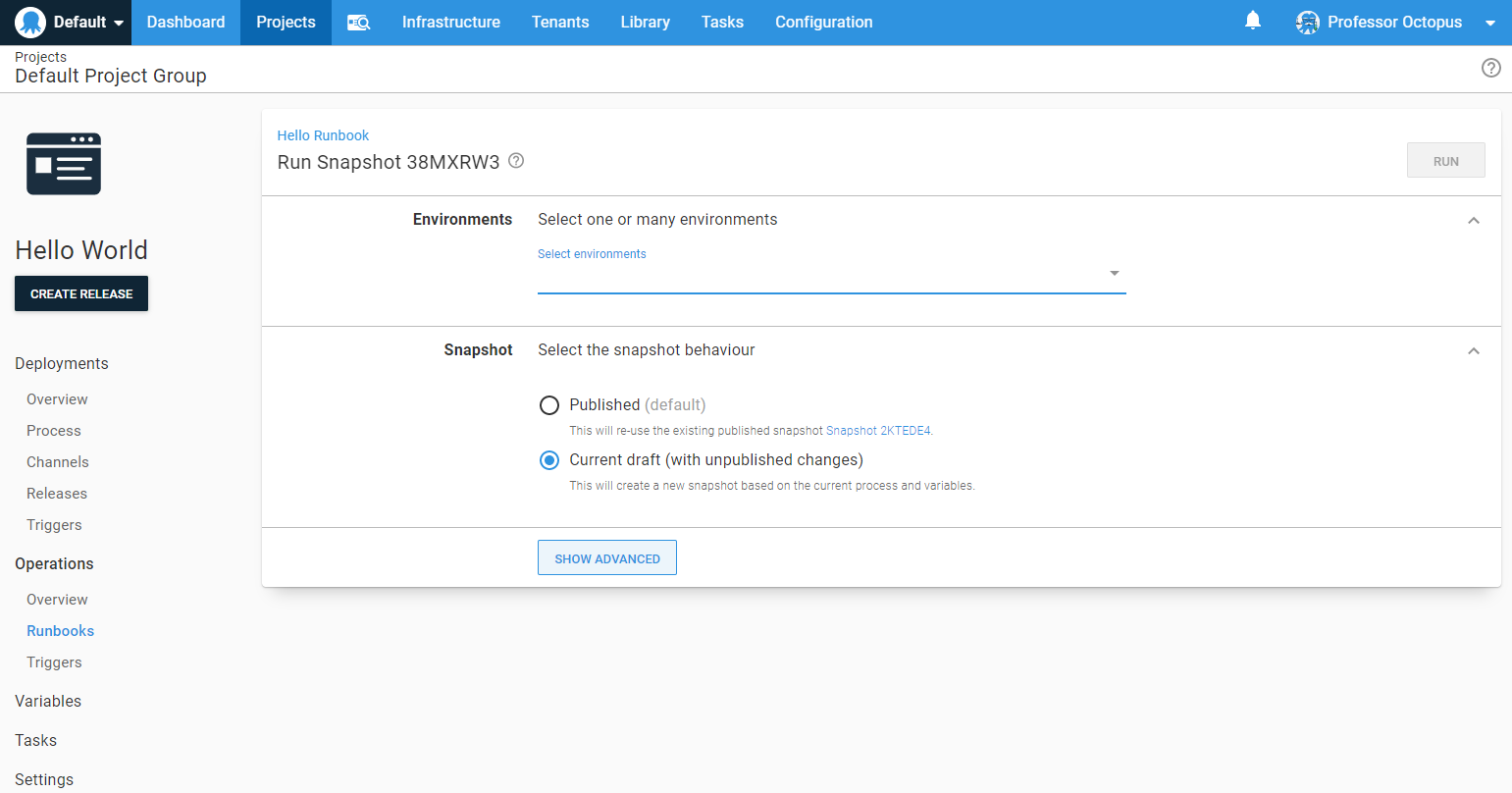Publishing a runbook will snapshot the runbook process and the associated assets (packages, scripts, variables) as they existed at that moment in time. After publishing a runbook, any future edits made will be considered a “draft.” For a trigger to pick up those new changes, a new publish event will need to occur.
- From the Hello world project you created earlier, click Runbooks in the left menu.
- Click Hello Runbook in the list of runbooks.
- Click Publish… in the runbook menu.
- Provide some notes and click PUBLISH.
If anyone changes the runbook process or its associated assets after it has been published, you can either run the most recent published Runbook, or run the current draft.

The specific version of any packages used in a runbook process is included in the snapshot when it is published. Updating a package requires you to republish the Runbook. As such, it is not recommended to use runbooks to “stage” or “pre-deploy” an application package.
You have now completed the tutorial for running your first runbook!
Further Reading
This tutorial is designed to cover the basics of how to configure runbooks and how they work. For further reading please see:
Help us continuously improve
Please let us know if you have any feedback about this page.
Page updated on Tuesday, July 30, 2024